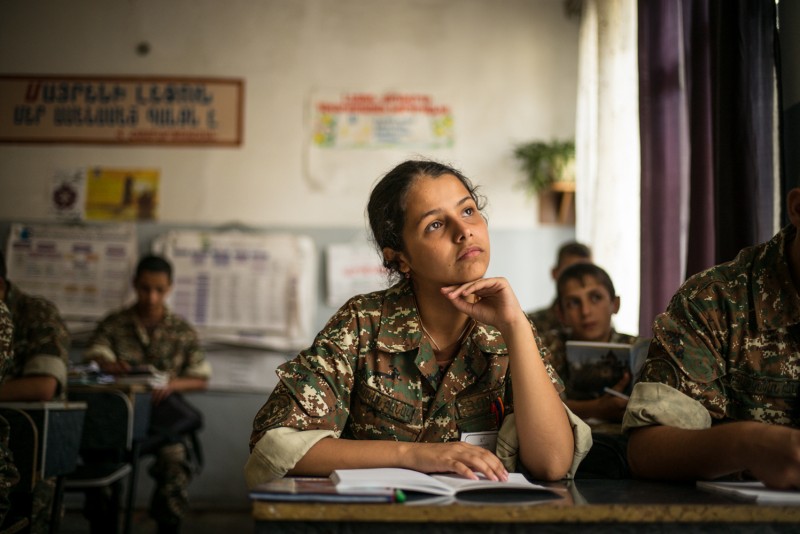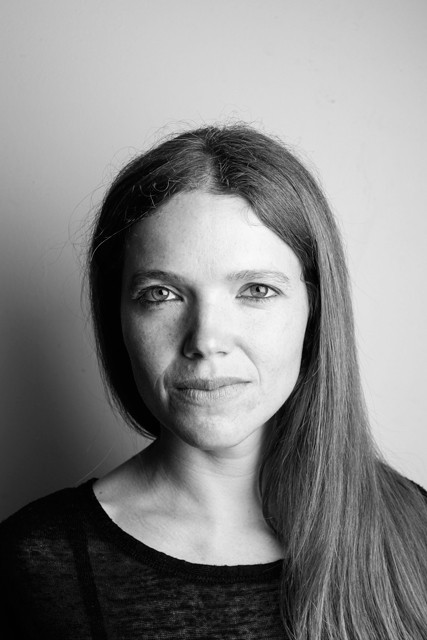Women to the Frontline
Women to the Frontline
Lena Mucha
October 10, 2016

The girl with a ready smile is one of a handful of 14 and 15 year-old girls who were accepted into the military high school in Stepanakert – a rare occurrence in a region where women are mostly still expected to stay home and raise children. Stepanakert is the capital of Bergkarabach, a self-proclaimed republic which declared its independence from Azerbaijan in the 1990s. In the neighbouring country of Armenia, there are already twenty young women studying at the military academy of Jerewan. This is where the officers for Armenia’s and Bergkarabach’s armies are being trained. The two armies share resources and soldiers.
Government officials say that the admittance of women into the military was a long overdue step towards making the military more inclusive. Demographics, however, also played a role in the decision: ever more Armenians are leaving their country in search of better economic opportunities, and couples increasingly choose to have fewer children.
Yet there are some at the Yerevan Military Academy who do not support this new development. “Women should not be in the army, it’s not their place”, one of the physical instructors believes. “They are just not like men.”
The female cadets shrug off such objections. They are sure that one day they will serve on the frontline between Armenia and Azerbaijan just like their male peers. Seda smiles wryly. She says she would not be afraid of shooting to kill the enemy – adding, “I shoot better than many of the boys.” She grins. Naomi Conrad
Lena Mucha+-
Freelance photographer Lena Mucha (born 1983) lives in Berlin. She studied Political Sciences and Social Anthropology in Cologne, completing her masters degree in 2011. In 2016 she received a grant for Magnum workshops with Patrick Zachmann and David Alan Harvey. Her work has been featured in publications such as Burn Magazine, Vice Columbia, Huffington Post, Stern and Lensculture. More

